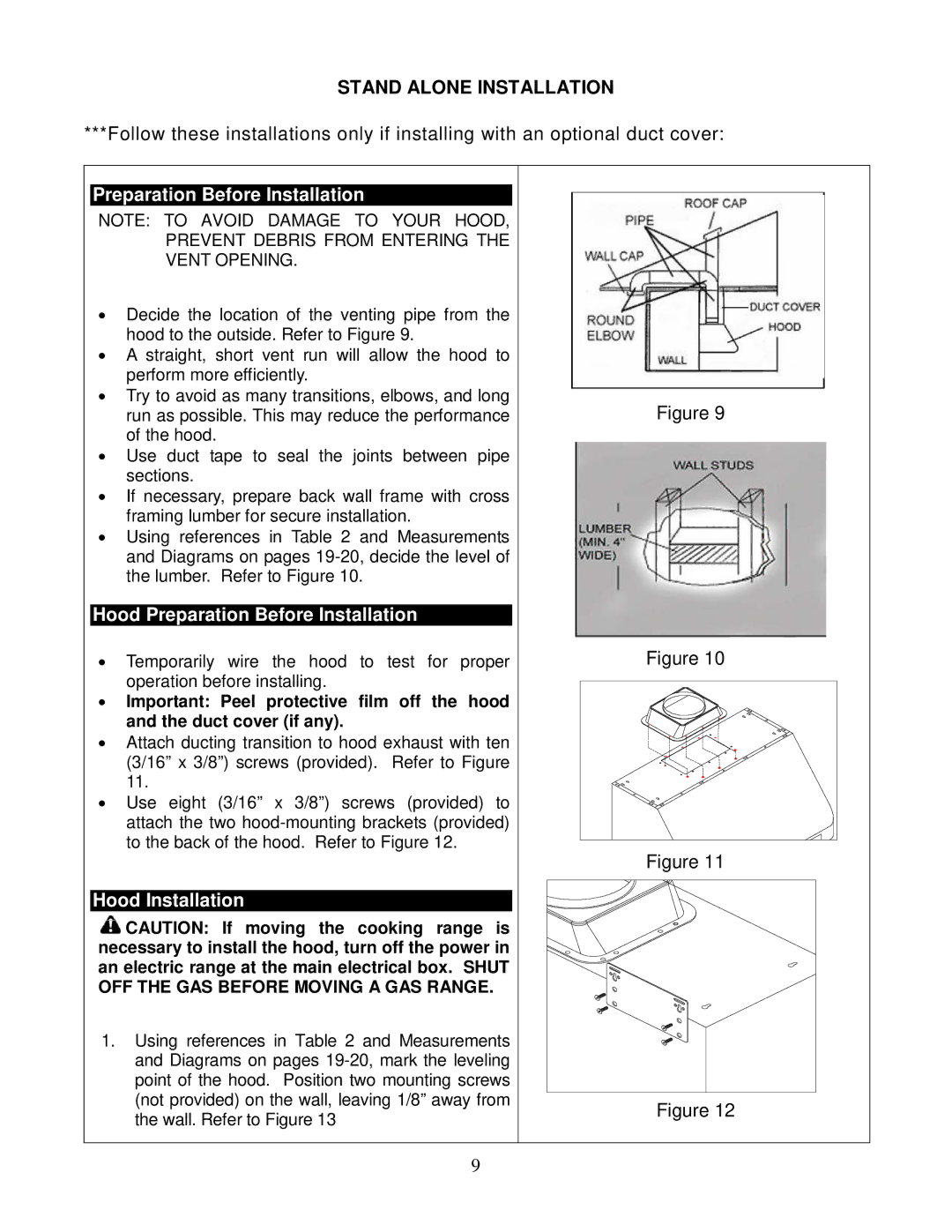
STAND ALONE INSTALLATION
***Follow these installations only if installing with an optional duct cover:
Preparation Before Installation
NOTE: TO AVOID DAMAGE TO YOUR HOOD, PREVENT DEBRIS FROM ENTERING THE VENT OPENING.
•Decide the location of the venting pipe from the hood to the outside. Refer to Figure 9.
•A straight, short vent run will allow the hood to perform more efficiently.
•Try to avoid as many transitions, elbows, and long run as possible. This may reduce the performance of the hood.
•Use duct tape to seal the joints between pipe sections.
•If necessary, prepare back wall frame with cross framing lumber for secure installation.
•Using references in Table 2 and Measurements and Diagrams on pages
Hood Preparation Before Installation
•Temporarily wire the hood to test for proper operation before installing.
•Important: Peel protective film off the hood and the duct cover (if any).
•Attach ducting transition to hood exhaust with ten (3/16” x 3/8”) screws (provided). Refer to Figure 11.
•Use eight (3/16” x 3/8”) screws (provided) to attach the two
Hood Installation
![]() CAUTION: If moving the cooking range is necessary to install the hood, turn off the power in an electric range at the main electrical box. SHUT OFF THE GAS BEFORE MOVING A GAS RANGE.
CAUTION: If moving the cooking range is necessary to install the hood, turn off the power in an electric range at the main electrical box. SHUT OFF THE GAS BEFORE MOVING A GAS RANGE.
1.Using references in Table 2 and Measurements and Diagrams on pages
Figure 9
Figure 10
Figure 11
Figure 12
9
